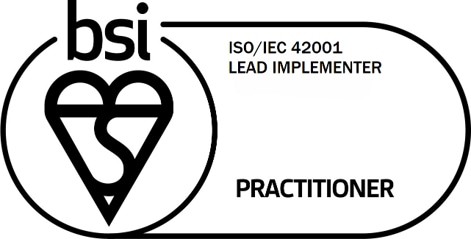This qualification allows implementers to efficiently meet stakeholder expectations with a robust AI Management systems (AIMS) and apply an implementation tailored to your organisation to ensure the AIMS is ISO 42001 compliant gain the understanding of the concepts which underpin SO/IEC 22989:2023 as a normative reference in ISO/IEC 42001:2023 along with controls and undertaking AI system impact assessment. As a risk-based standard ISO/IEC 42001:2023 provides the option of 38 risk controls that may be determined necessary for manging AI risks. This qualification also provides an oversight into how these controls can be implemented where they are necessary for the effective implementation of your AIMS.
How will I benefit?
This qualification will help you to lead and deliver an inclusive and effective implementation of an ISO/IEC 42001:2023 AIMS by giving you the knowledge and skills to:
- Identify and apply the benefits and requirements for an ISO/IEC 42001 audit
- Understand what is needed to develop an AI system
- Understand key terms and definitions associated with AI
- Gain knowledge to develop your AIMS framework and build awareness and support across your organization
- Understand key terms and definitions associated with AI System Impact Analysis and what is needed to develop an AI System Impact Analysis process
- Deliver the implementation of AI System Impact Assessments
- Apply and implement the best practice controls in ISO/IEC 42001:2023
- Explain the rationale behind the processes and usages associated with the controls
- Recognize how implementing these controls will help reduce levels of AI risk within your organization.
- Create the framework for your own Artificial Intelligence Management System (AIMS) and build awareness and support for information security across your organization
- Develop vital processes, policies and procedures that can be put into practice immediately
- Design improvement initiatives can be audited effectively
- Demonstrate you have the interview skills to develop audit focus and themes
- Identify and apply the capability to protect your business and meet stakeholder expectations
- Encourage continuous professional development across your organization
Which qualification will I achieve?

On successful completion of the qualification, you’ll receive a BSI Mark of Trust that can be shared within your organisation and across your network of contacts.
In addition, you will be awarded an internationally recognized BSI training course certificate for each of the completed courses and exams.


